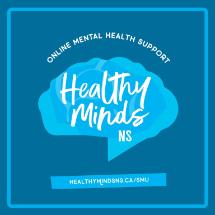Resources and FAQ
Resources
Emergencies
|
University Security Emergency Line (24 hours)
|
902-420-5000
|
|
Residence Services Front Desk (24 hours)
|
902-420-5591
|
|
Emergency Police & Fire
|
911
|
|
QEII Emergency Department
|
Located on 1799 Robie Street
|
|
IWK Emergency Department
For children and youth who are ill or injured up to their 16th birthday and children and youth with mental health care needs up to their 19th birthday. |
Located on South St. (near Robie St.)
|
Non-emergencies
|
Good2Talk
Free, confidential 24/7 counselling service via phone
|
1-833-292-3698
|
|
Crisis Text Line Powered by Kid’s Help Phone
Free, confidential 24/7 counselling service via phone
|
Text Good2TalkNS to 686868
to be connected to a volunteer-supporter from the privacy of your phone.
|
|
Mental Health Mobile Crisis Team
Free, confidential 24/7 hour Crisis Support via Phone
|
902-429-8167
or 1-888-429-8167(toll free)
|
|
The Counselling Centre
Sep-May - 8:00am-4:00pm (closed 12noon-1pm)
Jun-Aug - 8:00am-3:30pm (closed 12noon-1pm)
|
902-420-5615 or counselling@smu.ca
|
|
The Student Health Services Sep-May - 8:00am-4:00pm (closed 12noon-1pm)
Jun-Aug - 8:00am-3:30pm (closed 12noon-1pm)
|
902-420-5611
|
|
Family Focus (After-Hours)
|
902-420-6060
|
|
Avalon Sexual Assault Centre
8:30am-4:30pm; closed 12:30-1:30pm
*Due to Covid-19 we recommend checking the Avalon website regarding their current procedures* |
902-422-4240 or email: info@avaloncentre.ca
|
|
Sexual Assault Nurse Examiner (SANE)
24-hour Response Line
|
902-425-0122
|
TAO
Therapy Assistance Online (TAO) is an e-mental health resource that can be accessed at: http://thepath-ca.taoconnect.org (go to My pathways)
Healthy Minds NS

Saint Mary’s University currently offers three services through HealthyMindsNS: TAO, Crisis Text Line, and Good2Talk.
Mental Health Advocates
The Counselling Centre has developed an online program to learn more about a variety of mental health related subjects. The Mental Health Advocates program also offers co-curricular hours, which can be awarded after 10 or more modules are completed.
Healthy Minds App
Information on App: https://www.theroyal.ca/resource-library/healthy-minds-app.
Healthy Minds is now available for free for iPhone, iPad, iPad mini and iPod Touch through the App Store or through healthymindsapp.ca and difd.com.
Transitions Booklet
Transitions is a free mental health booklet. To view the booklet please click the link http://teenmentalhealth.org/product/transitions/ .
Other Counselling Initiatives
The Counselling Centre has various mental health initiatives we have developed which include: How to Identify and Refer a Student in Distress , and SMU Talks for Faculty and Staff.
FAQ
What is the Code of Student Conduct?
The Saint Mary’s University Code of Student Conduct outlines individual and community expectations regarding student actions and behaviour. The Code defines that students are responsible for acting in a manner that respects others and promotes their well-being and safety.
Who can file a complaint or concern?
Any member of the Saint Mary’s community (student, staff or faculty) can contact the Office of Student Affairs and Services (email studentconduct@smu.ca) during business hours to consult about a matter or to lodge formal complaint.
What are my responsibilities under the Code?
Students have a responsibility to be aware of policies and codes that guide their expectations of conduct in various environments where there is university-related activity.
All community members are expected to treat one another with mutual respect. When this expectation is not met and is not resolved informally, formal processes may be engaged.
Students are also held accountable for the behaviour of their guests under the Code.
In sum, students are expected to:
- Abide by university policies, procedures and regulations
- Respect the rights and safety of others
- Take responsibility for their actions
What are my rights under the Code?
Students have the right to make a complaint against any student who violates their right to a safe and welcoming educational environment.
All Saint Mary’s community members have rights which are protected under the Nova Scotia Human Rights Code as well as the Canadian Charter of Rights and Freedoms. These rights are subject to limitations and some activities which are acceptable in public space may not be appropriate in certain contexts in a post-secondary institution.
Students have a right to know this Code and other policies and regulations, in order to ensure a safe and positive learning environment.
Students have a right to procedural fairness in an investigation and determination of responsibility (as it relates to the Code).
These rights include:
- Right to a fair hearing
- Right to appeal
- Right to have an advisor or support person present at hearings or meetings
What is ‘balance of probabilities’ and what does it mean?
Balance of Probabilities is the standard of proof used in the Code of Student Conduct. Balance of probabilities is the "more likely (or probable) than not" standard. In other words, if the available evidence convinces the decision-maker to the point that they are 50% + 1 certain that a student has committed an offence, the standard of proof has been met.
Who can be a support person and what is their role?
A support person should be someone you trust and someone not directly involved in the incident/case. They do not speak on your behalf but you may consult with them at any time during the process.
What is the difference between the Code of Student Conduct and the Residence Code of Conduct and the Academic Regulations?
The Code of Student Conduct applies to the non-academic behavior of all current students within Saint Mary’s University.
The Residence Code of Conduct is also bound by the Code of Student Conduct. This means that all sections of the Code of Student Conduct apply to those living in residence. The Residence Code of Conduct (RCC) outlines additional regulations for living in residence and defines acceptable behaviour. These regulations serve to protect the health, well-being, and safety of the community.
The Academic Regulations apply to all students enrolled in courses or programs at Saint Mary’s University. These policies and procedures outline the requirements students need to fulfill in order to uphold their academic responsibilities. It also provides an outline of the processes involved in resolving issues when informal resolution is not possible.
Can I submit an anonymous complaint?
Anonymous complaints will be acknowledged and resources for the anonymous complainant will be provided. Whether or not an anonymous allegation can proceed in the absence of an identified complainant will be determined by the Associate Vice-President, Student Affairs and Services (or designate) having regard to all of the circumstances of the case and the evidence available. Information provided by the anonymous source may also be used as the basis to decide to engage a process aimed at addressing systemic or cultural concerns.
The university requires everyone involved in the complaints process to respect the confidentiality of individuals.
Any member of the Saint Mary’s community can contact the Assistant Director, Student Culture and Experience during business hours to consult about a matter and without lodging a formal complaint.
Under exceptional circumstances, such as situations involving a serious risk of harm to a community member, proceedings under the Code may be initiated without a written complaint.
My Code complaint involves criminal behaviour. Can I report to the police if I have already put in a Code complaint?
Members of the Saint Mary’s community who have been affected by a student’s behaviour that is criminal in nature can contact the Halifax Regional Police to report the incident(s) at any time. In the case of emergencies, call 9-1-1. For non-emergency reporting to police, contact 902-490-5020.
A Code complaint can be submitted even if a person has reported to the police, however in most cases, formal resolution by the University of any allegations which are the subject of a criminal or civil court proceeding will be suspended until the resolution of that proceeding.
In cases in which criminal or civil proceedings have not been taken, or the proceedings would not adequately protect the university‘s interests, and/or provide adequate safety and risk mitigation measures, the university reserves the right to take action under this Code, including the application of interim measures.
I don’t want to see the person who harmed me. Will I have to be in the same room with them during the Code process?
The only time a complainant would be required to be in the same room as the respondent is during an Adjudication Panel Hearing and not all cases are resolved through this type of hearing. Additionally, the Code of Student Conduct states that a complainant may submit a request for accommodations to not appear in the same room as the respondent during the Adjudication Panel Hearing.
The complainant should note any safety concerns that they have upon submitting the written complaint or when meeting with the Associate Vice-President, Student Affairs and Services or their designate.
Can I make a complaint against a student who is making racist comments?
There are several offences outlined in the Code that prohibit racist comments or other behaviours. Anyone who experiences racism by a student should seek guidance on how to submit a Code complaint by emailing studentconduct@smu.ca.
I have experienced sexualized violence. Do I make a complaint under the Code of Student Conduct?
Saint Mary’s has a separate standalone Sexual Violence Policy. You can email sexualviolence@smu.ca to discuss your reporting options and access supports.
